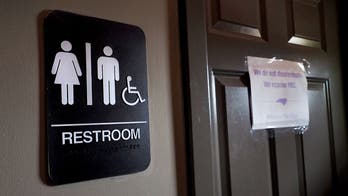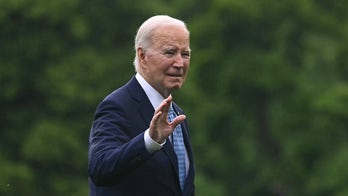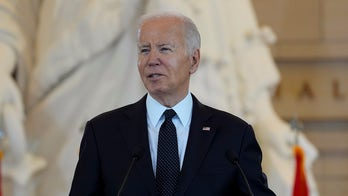Fox News Flash top headlines for June 16
Fox News Flash top headlines are here. Check out what's clicking on Foxnews.com.
The 1/6 committee will lay out a case about the pressure campaign applied to former Vice President Mike Pence to tilt the election in favor of former President Trump.
The scheme assembled by attorney John Eastman was to convince Pence to reject electoral vote from states in question as he presided over the Joint Session.
Pence has indicated that he doubted he had any agility in that circumstance — especially after seeking counsel from former Indiana senator & former Vice President Dan Quayle. Quayle presided over the re-election loss in the Joint Session in 1993 as President Bill Clinton vanquished President George H.W. Bush.
The role of the Vice President is dictated by The Electoral Count Act and the 12th Amendment to the Constitution.
STATE LAWMAKERS PUSH BACK ON ‘BIDEN BUCKS’ ELECTION EXECUTIVE ORDER
Congress passed the legislation after the disputed 1876 Presidential election between President Rutherford B. Hayes and Samuel Tilden. Electoral votes were far from certain in Florida, South Carolina, Louisiana and Oregon. There was a sprint to settle the electoral college tally before Inauguration Day, 1877. Congress created an "electoral commission" to resolve the issues. In those days, the president assumed office on March 4.
The Electoral Count Act dictates that states choose electors no more than 41 days after the election. This is partly why the Supreme Court rushed to complete Bush v. Gore on December 12, 2000. The decision halted the count of ballots in Florida, handing the presidency to George W. Bush.
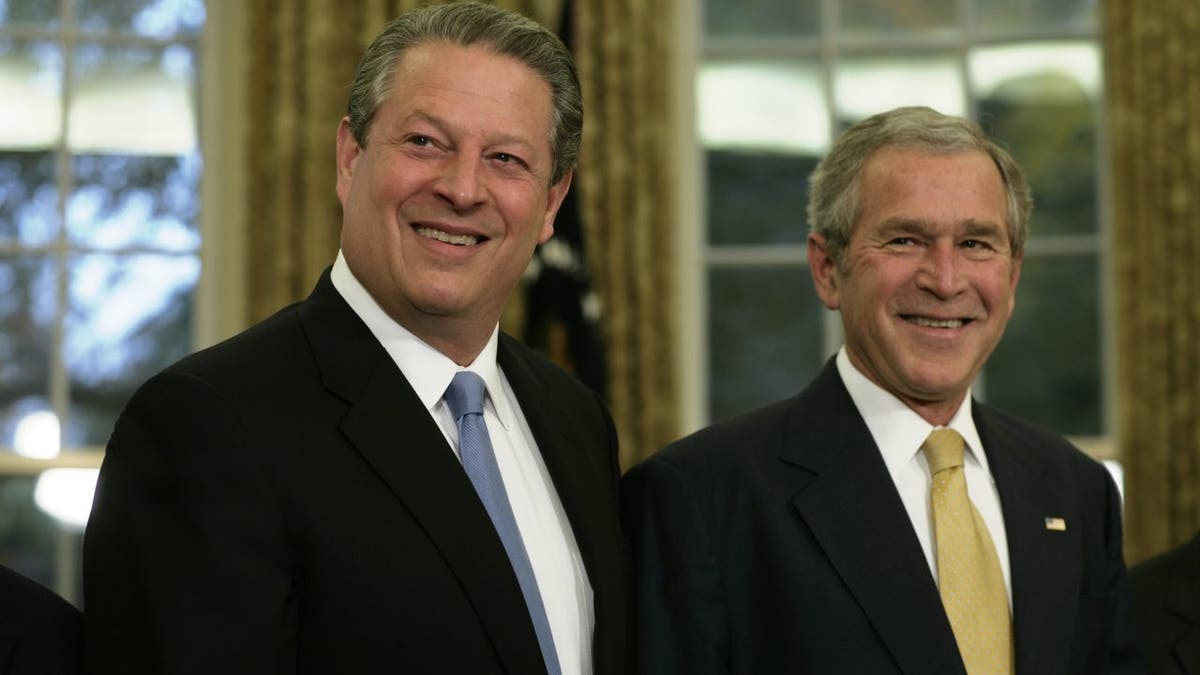
The U.S. Supreme Court ruled in a 5-4 vote that Bush was the victor in the 2000 presidential election. (Brooks Kraft LLC/Corbis via Getty Image)
The 1887 law establishes a "safe harbor" date so states conclude vote counts and establish electors early. But what happens if there are problems with the mail? The cryptic nature of the statute could give some states the green light to continue to counting — or cease counting.
So what happens if a state sends inconsistent slates of electoral votes to Congress? Or, if there are disputed electoral votes?
BIDEN ERA OPENS AMID DEEP MISTRUST, LACK OF BIPARTISAN COOPERATION IN WASHINGTON
That’s sorted out in the certification of the Electoral College in the Joint Session of Congress on January 6 – as dictated by the Electoral Count Act.
Also with a role in this: The 12th Amendment to the Constitution.
The 12th Amendment is murky as to what should happen during the certification process. It reads: "The President of the Senate shall, in the presence of the Senate and House of Representatives, open all the certificates and the votes shall then be counted."
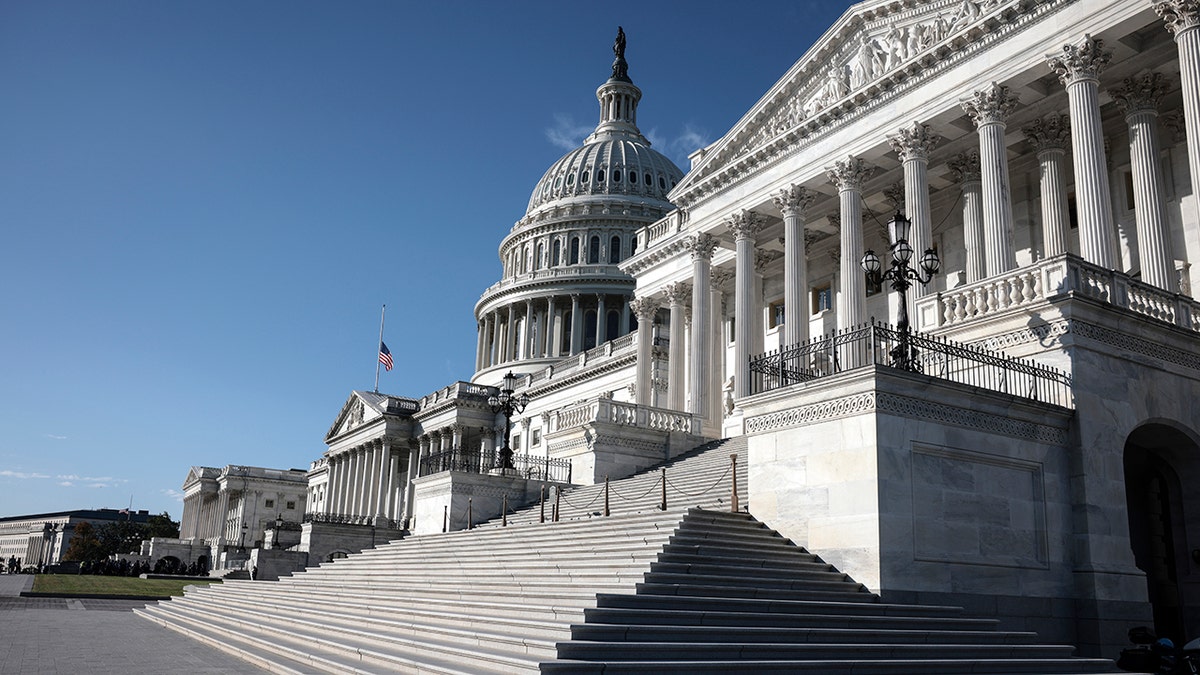
The U.S. Capitol Building is seen on October 22, 2021 in Washington, DC. Following a breakfast meeting with U.S. President Joe Biden, House Speaker Nancy Pelosi (D-CA) said that Democrats were nearing a deal on reconciliation. (Anna Moneymaker/Getty Images)
Note the passive voice in the phrase the "votes shall then be counted."
That does not suggest any flexibility on behalf of the Vice President. Or, is another interpretation is that the Vice President DOES have a role? It is simply the responsibility of the Vice President to report what the count is – even if there is potential for influence or meddling?
The 12th Amendment also says "the person having the greatest number of votes for President shall be President."
BIDEN'S EXECUTIVE ORDER MADE FEDERAL AGENCIES CONDUCT VOTER REGISTRATION 'SCHEME': REPUBLICANS
A Vice President flexing his or her muscles during the Electoral College certification is not exactly terra nova. There is precedent for vice presidential involvement.
Hawaii wasn’t a determinative state in the 1960 presidential election between President John F. Kennedy and future President – then Vice President - Richard Nixon. Kennedy was going to win the White House, regardless of results from Hawaii. Initial results from Hawaii showed that Kennedy captured the Aloha State by 92 votes. However, a recount showed that Nixon won by 141 votes.
DR. OZ DECLARES HIMSELF ‘PRESUMPTIVE’ GOP SENATE NOMINEE AS PENNSYLVANIA RECOUNT GETS UNDERWAY
Nonetheless, Hawaii sent two slates of electoral votes to Washington: one for Nixon and one for Kennedy. The governor signed both slates. By the book, Hawaii’s electoral votes should have gone to Nixon. But when the Joint Session of Congress convened in January, 1961, Congress and Nixon handed Hawaii’s three electoral votes to Kennedy — even though Nixon probably should have awarded the votes to himself.
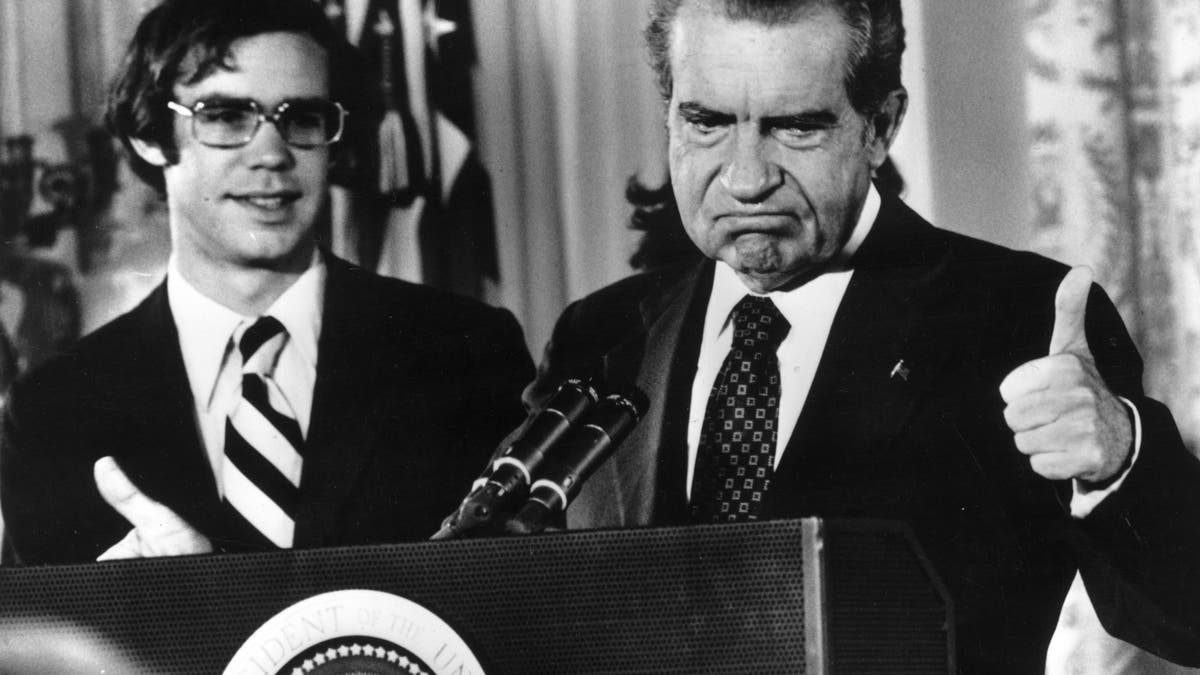
Richard Nixon (1913 - 1994) gives the thumbs up after his resignation as 37th President of the United States. His son-in-law David Eisenhower is with him as he says goodbye to his staff at the White House, Washington DC. (Gene Forte/Consolidated News Pictures/Getty Images)
After the 2000 Florida election dispute, a cavalcade of Congressional Black Caucus (CBC) members paraded through the well of the House chamber to contest the outcome. Vice President Al Gore, then president of the Senate, and like Nixon, the vanquished Democratic nominee, presided.
"Mr. Vice President, I rise to object to the fraudulent 24 Florida electoral votes," declared Rep. Maxine Waters (D-CA).
"Is the objection in writing and signed by a member of the House and a senator?" inquired Gore.
Congressional rules require a House member and senator simultaneously challenge a state’s electoral slate. But Waters lacked a Senate sponsor.
HERITAGE FOUNDATION TAKES VOTER FRAUD BATTLE STRAIGHT TO STATES: 'ON THE TARGET'
"The objection is in writing!" snapped Waters. "And I don’t care!"
Gore, stood firm, despite having the most to benefit from Waters’ entreaty.
"The chair will advise that the rules do care," Gore intoned, triggering applause throughout the House chamber.
The issue never went to a vote in either chamber because no senator joined the CBC members.
CLICK HERE TO GET THE FOX NEWS APP
Questions arose in January, 2005 about Ohio’s slate of electoral votes. In that instance, the late Rep. Stephanie Tubbs Jones (D-OH) and former Sen. Barbara Boxer (D-CA) teamed up to challenge Ohio’s electoral votes. That triggered separate debates and votes in the House and Senate to consider Ohio’s slate. But after a short debate, Congress decided that President George W. Bush was victorious in Ohio.
In January, 2017, multiple House Democrats attempted to challenge the certification of the election of former President Trump. However, House Democrats lacked a Senate petitioner to trigger a debate in the House and Senate – ala 2005.




